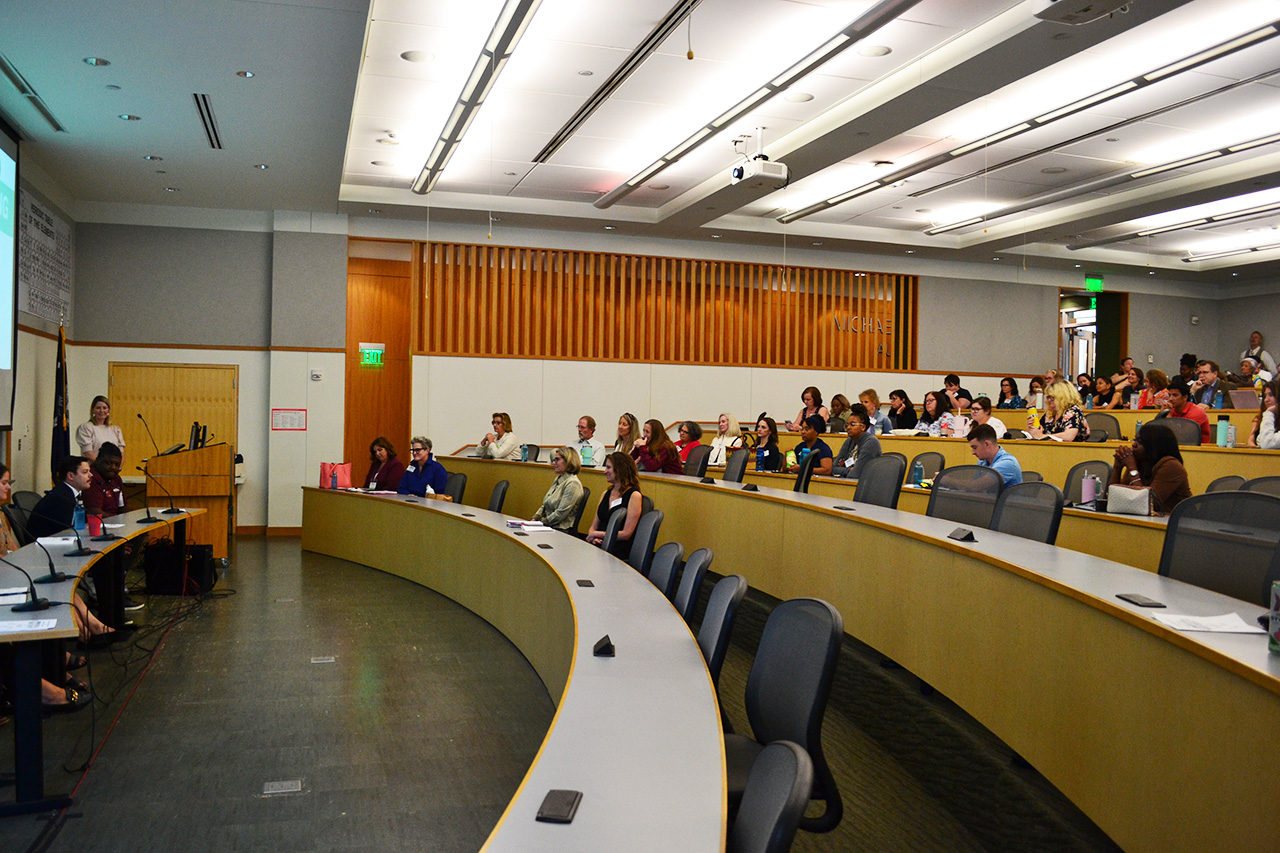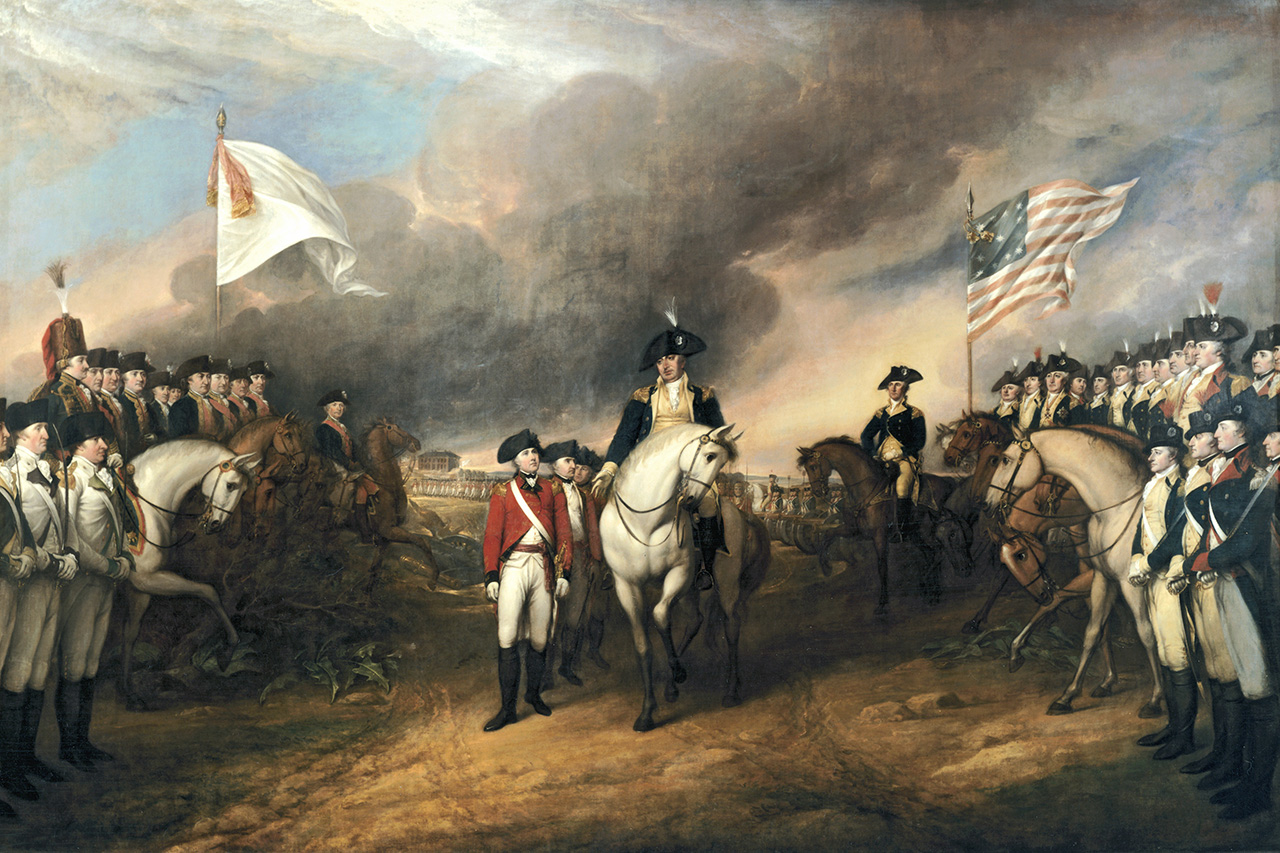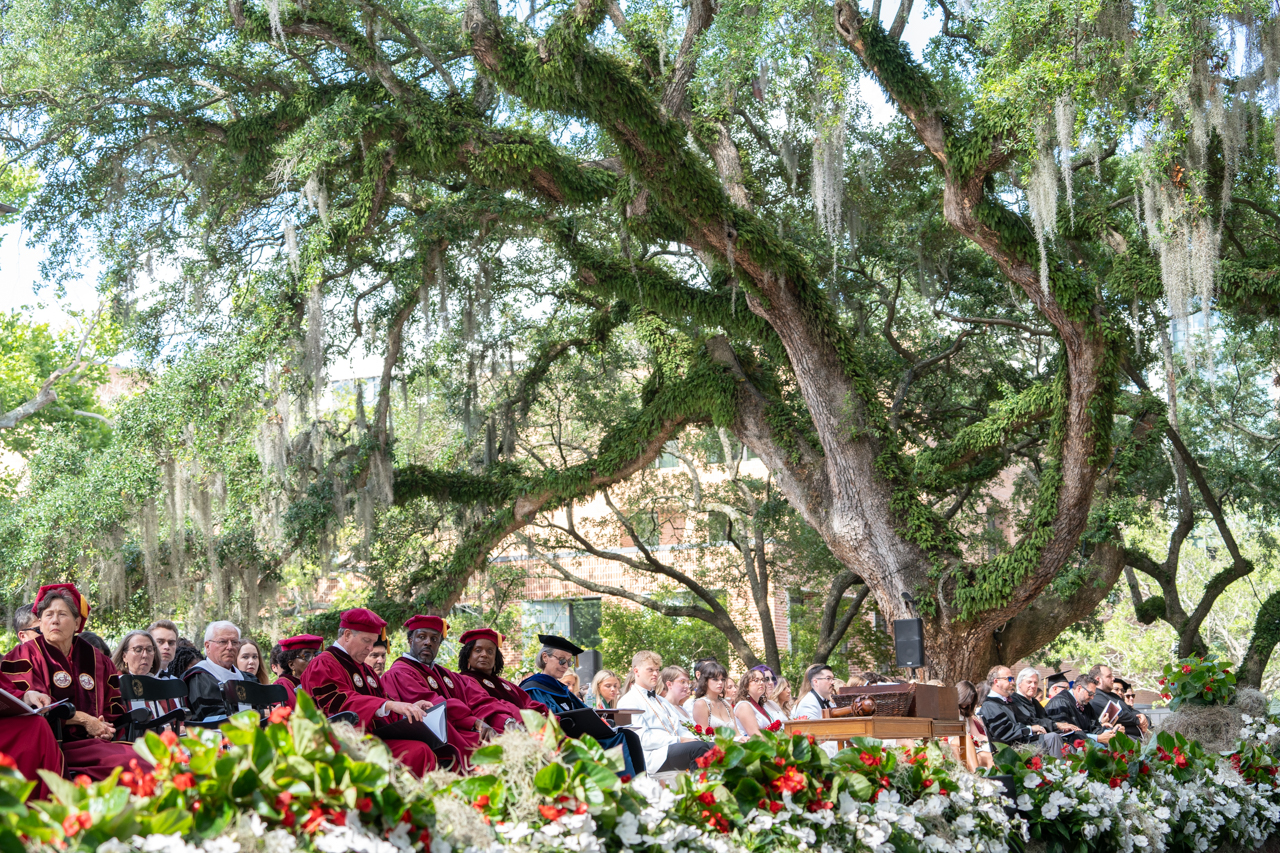College of Charleston Hosts Conference on Student Wellbeing
More than 125 professionals from Charleston area higher education institutions attended the second annual Charleston Student Health and Wellbeing Consortium Conference at the College on May 21, 2024.

More than 125 professionals from Charleston area higher education institutions attended the second annual Charleston Student Health and Wellbeing Consortium Conference at the College of Charleston on May 21, 2024.
The Charleston Student Health and Wellbeing Consortium is an alliance of the College of Charleston, The Citadel and the Medical University of South Carolina. This year’s conference attendees also included participants from Trident Technical College, Charleston Southern University and community partners.
With speakers addressing topics that contribute to student success and expand on the resources available to institutions serving college and university students, the conference provided an opportunity for attendees to collaborate and learn about the changing mental health landscape and how to assist overall student wellbeing.
“Gatherings like this are critical not only for idea sharing and national benchmarking,” says Alicia Caudill, executive vice president for student affairs, “but for building our own community connections to better support all of our students.”
Discussion groups were also an integral part of the day, with specialists guiding conversations on mental health and counseling; diversity, equity and accessibility; advocacy; confidentiality and legal issues in higher education; and understanding the needs of Generation P (students whose education was drastically affected by the pandemic).
One of the highlights of the day was in the student panel discussion. Two students from each institution shared their personal experiences and touched on the resources that have helped promote their wellbeing. The students talked about the importance of using campus resources – things like Clyde the Chatbot, which the CofC student panelists said helped in their personal wellness journeys – and forming relationships with mentors on campus.
Public health major Sam Swartz ’24 added that getting involved on campus really helped him with his “social space and overcoming [feelings] of anxiety.” Swartz’ involvement with the Neurodiversity Initiative, for example, gave him “purpose and sparked more a drive within me to do something on a larger scale.”
The consortium plans to continue to grow, evolve and expand the outreach in support of all students’ health and wellbeing.



